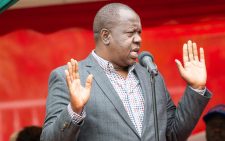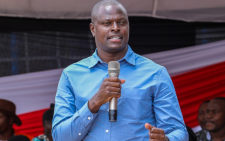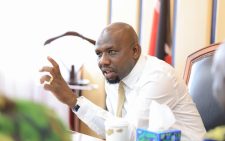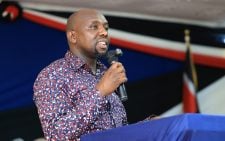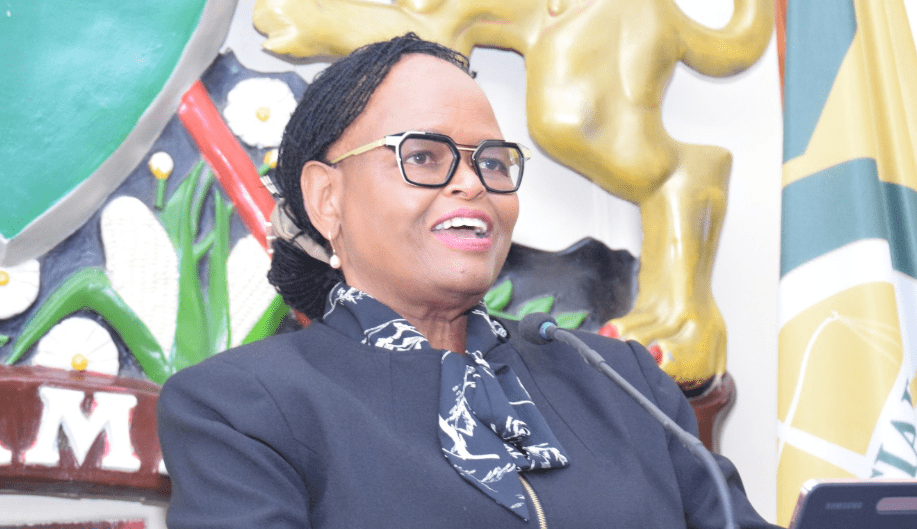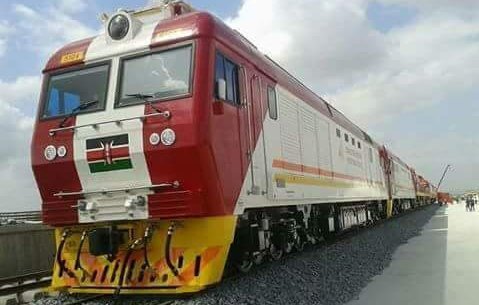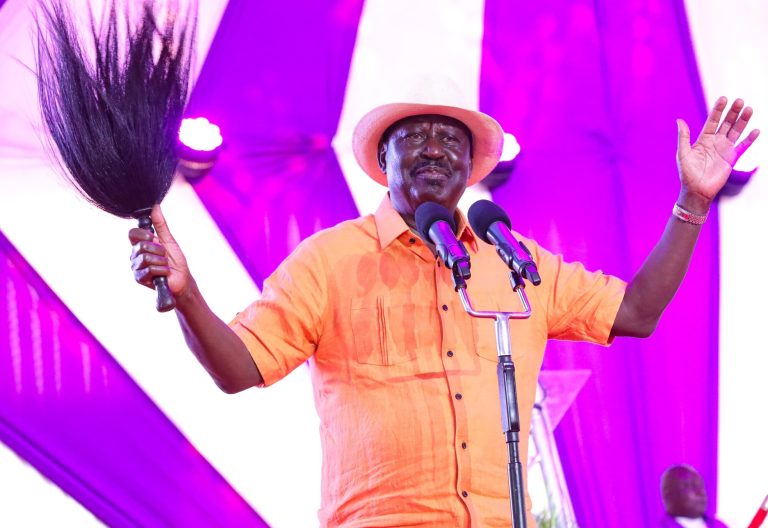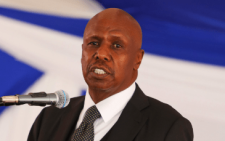Disunity, money woes may hobble anti-Ruto forces
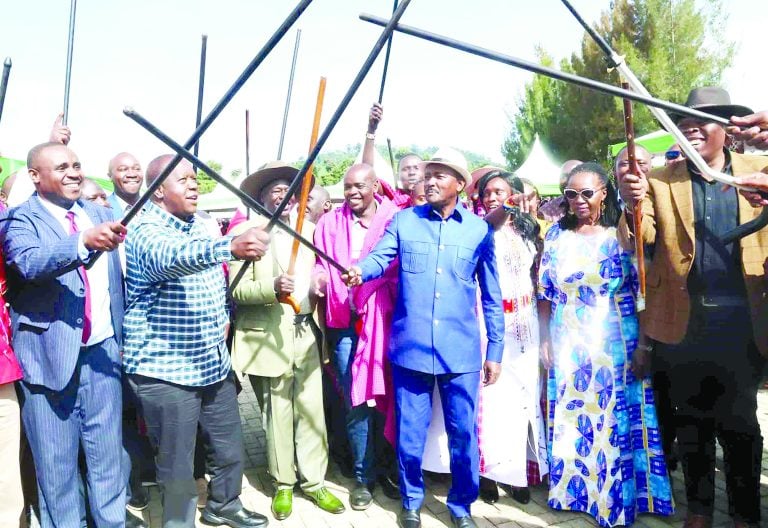
The reverberating “one term” chants directed at President William Ruto are growing louder across Kenya, echoing through political rallies and capturing national attention.
What began as political jabs has evolved into an organised Opposition movement threatening to make Ruto a one-term President.
While President Ruto has attempted to downplay the criticism clouding his regime, the increasing volume of “one term” chants clearly unsettles him.
Campaign blitz
Last weekend, Wiper Party leader Kalonzo Musyoka and former Deputy President Rigathi Gachagua led a spirited campaign across Eastern and Coastal Kenya – regions with over 3.6 million registered voters, according to 2022 IEBC data.
The opposition caravan travelled through Malili, Sultan Hamud, Emali, Makindu, Kibwezi, and Machinery on Friday, June 6, 2025, before moving to the coast with stops in Voi, Maungu, Mariakani, Mazeras, and Changamwe on Saturday, June 7, 2025.
From truck-top rallies, Kalonzo and Gachagua accused the Ruto administration of presiding over stalled infrastructure projects, land grabbing, and economic mismanagement.
They pledged to restore integrity and accountability if they win the 2027 elections.
They were joined by prominent political figures, including former CS Eugene Wamalwa, Agriculture CS Mithika Linturi, Kisii Senator Richard Onyonka, Kiambu Senator Karungo Thang’wa, Makueni Senator Dan Maanzo, Jubilee Party chairman Saitoti Njoroge, and Makueni Governor Mutula Kilonzo Jr.
This marked the first joint Opposition rallies in the Coast region – historically loyal to ODM leader Raila Odinga.
Their presence signals a strategic bid to pry the region from ODM’s grip and consolidate an anti-Ruto voting bloc.
Opposition disunity
Despite the momentum, political analysts warn that structural vulnerabilities may undermine the opposition’s ambitions. Chief among these is internal disunity.
“Opposition disintegration has cost this country democratic transitions before,” said Dr Richard Bosire, a political science lecturer at the University of Nairobi.
“In 1992 and 1997, President Moi won largely because opposition parties were fragmented. The lesson is clear – unity is critical.”
Bosire notes that mistrust among politicians remains a serious challenge.
“It’s unfortunate that in this country, politics is not necessarily about being truthful. When you lie to the public, it’s still okay – you remain electable. We have a Constitution that spells out ethics and values for public office holders, and politicians are not above Chapter Six. Integrity issues persist.”
He argues that normalised deception continues to damage the country’s political process.
“The framers of our Constitution wanted honest people so politics doesn’t appear merely deceptive – the Machiavellian way where power means destroying anyone else.”
Veteran political commentator Ayub Mwangi shares Bosire’s concerns, drawing from Kenya’s political history.
“There’s a trust deficit. Kalonzo has a track record of wavering. These alliances form, collapse, and reemerge, sometimes overnight. That instability is a structural liability,” Mwangi said.
“In that group, I don’t trust Kalonzo. He’s unpredictable. The trust deficit is deep. You’ll see people fall out, reunite, and fall out again. That’s politics, but it signals a serious structural problem for opposition strategy.”
Gachagua, who has publicly regretted aligning with President Ruto in 2022, now presents himself as a wiser, more seasoned political player.
Whether he can translate that evolution into credible opposition leadership remains uncertain.
Beyond declarations
During rallies, the Opposition pledged to field a single presidential candidate in 2027 and deploy trained agents across all polling stations to prevent electoral malpractices.
However, experts warn that forming sustainable coalitions requires more than public declarations.
“We must move beyond handshakes and press conferences. Coalitions should be formalised through Memoranda of Understanding registered with the Office of the Registrar of Political Parties,” Bosire asserted.
Mwangi believes legal frameworks aren’t the main hurdle.
“Lawyers can handle paperwork. The elephant in the room is money. President Ruto’s side is well-funded. Opposition outfits are largely running on fumes. Unless Kalonzo can leverage State capitation from his MPs, they’ll need serious donor support or risk financial burnout.”
Campaign finance
Both experts agree that campaign financing may be the deciding factor.
“Ruto’s side has abundant resources. The Opposition is mostly self-funded unless someone like Kalonzo gets capitation support through his party’s active MPs. The rest must dig deep into their pockets or secure goodwill from citizens and funders,” Mwangi argues.
“Parliament’s failure to enact campaign finance laws gives those with State backing an unfair advantage,” Bosire noted.
Mwangi warns of a starker scenario: “Team Ruto can bleed them dry. If Opposition candidates run out of money mid-campaign, they’ll make mistakes – or worse, abandon the race. You need deep pockets or generous backers. Without either, you’re finished.”
He cautions that money could also enable co-option: “If Ruto’s people offer Kalonzo a billion shillings to walk away, would he refuse? That’s how you weaken opposition from within.”
Worries about IEBC
With mounting concerns over IEBC’s independence, Bosire warns that a compromised electoral body could derail democracy.
He views continued distrust in the IEBC as another opposition hurdle.
“Kenyans and politicians have voiced concerns that the commission appears to serve the incumbent’s interests. If trust in the referee collapses, so does the match,” he said, pointing to delays and political interference in the commission’s reconstitution.
He flagged the urgency of completing boundary reviews to avoid voter disenfranchisement.
“The opposition must invest in a tech-based parallel tallying system,” Bosire advised.
“Announce results at polling stations – don’t wait for Nairobi.”
Digital warfare
Mwangi addressed digital manipulation, warning that State actors can influence platform algorithms.
Based on previous elections, online dissent can be quietly suppressed.
“Usage of bots, misinformation, and AI-manipulated content are already shifting public perception,” the communications expert said.
Another challenge is tapping Gen Z voters’ potential, especially following recent youth-led protests.
“We need young people to do more than trend hashtags,” Mwangi said. “Register. Mobilise. Vote. I tell my own kids: bring ten friends to the voter register. That’s how real change happens.”
Bosire notes that the system prefers apathetic youth who protest but don’t vote.
Authoritarian concerns
He raised concerns about resurgent authoritarianism reminiscent of the Moi era.
“There’s an increasingly repressive tone – institutions like police and anti-corruption commission are being weaponised. We experienced this in the 1980s through 1997-98, including violence against presidential opponents. I remember Dr Richard Leakey being flogged in Nakuru for opposing the Moi regime.”
“When we see incidents like arresting the lady who created a portal, despite doing nothing wrong, I view this as the worst affront to our democratic progress. This is gravely concerning to the public and country leaders,” Bosire noted, calling on the President to stop the trend.
He warned that without change, people may become bolder as elections approach. “We don’t want to experience violence.”
Mwangi echoed these sentiments with resignation: “For Ruto, this is existential. He will do everything to retain power. Unless the Opposition fights with equal tenacity, it’s over before it begins.”
Perhaps the most unpredictable figure in the 2027 race is Rigathi Gachagua.
Though recently sidelined, his political manoeuvring could prove decisive.
“Gachagua is politically boxed in, but whoever he backs could swing the vote,” Mwangi observed. “He could splinter the Kenya Kwanza base or forge a new, disruptive coalition.”
Other possible contenders include Interior Cabinet Secretary Dr Fred Matiang’i and Kalonzo Musyoka – each a potential kingpin or spoiler, depending on coalition dynamics. But unity remains elusive.
“Will Kalonzo play second fiddle to Matiang’i? Highly unlikely,” Mwangi noted. “That makes consensus even harder.”
Call for dialogue
With less than three years to the polls, Bosire calls for a national dialogue on electoral integrity and democratic governance.
“If the State won’t initiate it, civil society, the Opposition, and citizens must take the mantle. Let’s shape our democracy’s future together.”
According to Mwangi, “The 2027 election will be won at the grassroots – door-to-door engagement, financial survival, and smart tech messaging. That ground war begins now.”.


